
Dividing people with drones. Maybe we should just go back to soldiers and barbed-wire fences?
The BBC is reporting that the influential Legatum Institute is proposing the use of drones (unmanned aerial vehicles) and airships to perform surveillance tasks post-Brexit to deal with the fact that there will be, once again, a 500km border to police in the case of an end to the Customs Union: a policy currently part of the proposed Brexit deal preferred by Theresa May.
Such a move risks enflaming tensions in the region and completely disregards the last century of Irish-UK history in which over 3600 people were killed and thousands more injured in the late 20th century alone. On top of that, human rights abuses were common place. Dozens of Irish citizens in the UK were wrongly sent to prison for crimes they didn’t commit after the police invented cases against them, and suspected terrorists were regularly detained without trial in internment camps.
All of this took years of negotiation to resolve and culminated in the Good Friday Agreement between the Irish and British governments, together with the nationalist and loyalist parties of Northern Ireland, which even today only barely holds the different factions together and capable of running a devolved government. The peace that has held since that time is largely because economic prosperity could reach all communities of Northern Ireland, very much helped by the fact that both countries are part of the European Union.
Brexit is a disaster for the European Union. As it says in the DiEM manifesto, “The European Union was an exceptional achievement, bringing together in peace European peoples speaking different languages, submersed in different cultures, proving that it was possible to create a shared framework of human rights across a continent that was, not long ago, home to murderous chauvinism, racism and barbarity.”
Surveillance drones and other such science-fiction security measures risk taking Northern Ireland back to the darkest period of its history. No matter what madness is unleashed by Brexit, a return to the Troubles must be avoided at all costs.
Tony Robinson, DSC Budapest 01, and member of the Abolition 2000 Coordination Committee
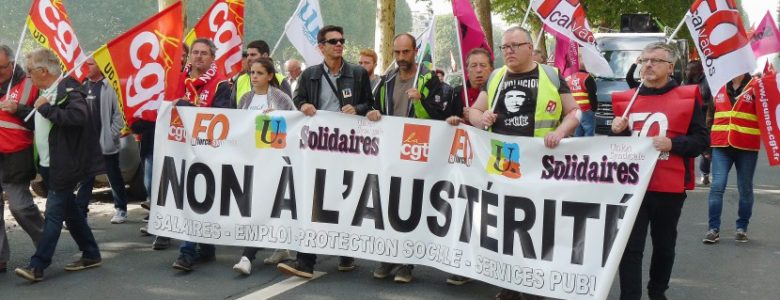
French workers protest Macron's labour reform – and the troika's arrival in Paris
Yesterday, French labour unions mobilised in the streets of France against President Macron’s push to deregulate the labour market. Macron’s move is much more than a simple ideological battle of how to best attack France’s unemployment – it takes place in a wider European context, that deserves exploring.
Three years ago, then French President Hollande, as if asking for clemency, said: “Don’t ask us to do in five years … what our German friends did in more than ten years in a much more favourable economic setting and without any constraint from the public deficit.” At the time, Berlin was growing impatient with Paris’ reluctance to mimic its own labour market reforms, and was pressuring France to make similar moves. These “structural” reforms reflected Europe’s new paradigm of austerity and neoliberal convergence, which were aimed at two things.
First, to disguise wage ‘moderation’, the obliteration of hard-won labour rights and the decimation of trade unions under the false promises of boosting employment, fostering entrepreneurship and allowing for investment to flourish as a result.
Second, and most critically, to harmonise French labour market “flexibility” with Germany as part of Wolfgang Schäuble’s ultimate plan for Europe: to prepare the ground for the de facto installation of a troika directorate in Paris and other European capitals.
Ahead of the German elections later this month, President Macron isn’t apologetic at all: he will push his neoliberal labour reform at once – and its subsequent and inevitable welfare state restructuring – to pave the way for Schäuble’s plan.
Macron was elected fully aware of Schäuble’s plan for Europe. His counter-plan was to make a deal with Chancellor Merkel: to deliver a Germanised French labour market (which some French corporations would eagerly embrace) in exchange for a ‘federation-lite’ (including a small common budget, 1% of eurozone GDP, some Eurobonds, funding some federal investment projects and possibly a federal unemployment and bank deposit insurance).
DiEM25 criticised this proposed deal as a Faustian bargain: We argued that, even if Macron Germanised French labour, Merkel would not deliver the ‘federation-lite’. She would make promises but then take them back. But even if she did, in the end, buckle, Macron would waste all his political capital to effect a federation-lite that is macroeconomically and socially insignificant. Once citizens realised that, he would be toast.
Things have already turned out far, far worse than we expected. Merkel, Schäuble but also Schultz rejected out of hand Macron’s federation-lite. Gone! Instead, they are proposing that the European Stability Mechanism (ESM) should be transformed into a souped-up European Monetary Fund: i.e., a bailout fund (like the IMF) with an additional capacity to lend monies for the purpose of some investment and unemployment benefit payments.
For some this sounded much like Macron’s idea: a common fund for eurozone member-states paying for investment and insurance. Not so! The ESM has the same, exact, structure as… the Eurogroup. Indeed, its governors are the Eurogroup members! Moreover, for every euro it pays to a country, it does so on condition that its expenditure is reviewed by the troika (which they call the Euro Working Group) and comes with strings attached. This means something startling: For France or Italy to benefit from this ‘reformed’ ESM-EMF, they will have to subject themselves to… the troika.
Conclusion 1: Schäuble’s plan, which was always about taking the troika to Paris and to Rome, is alive and kicking. And the worst? Our sources tell us that the bureaucrats Macron has surrounded him with have convinced him that the ESM-EMF is a decent idea.
Conclusion 2: Macron is finished. Yesterday, DiEM25 members fought on the streets of Paris, and will continue to fight throughout Europe! Our European New Deal must be our discursive weapon and our members our soldiers.
French workers are right to protest, as they understand these reforms are proving devastating everywhere they have been implemented; they need only look at Spain to know what’s coming: the institutionalising of the polarisation in the job market, the weakening of the position of work and organised labour, and de facto downgrading of working conditions, especially for the young.
Ultimately, however, what needs to be recognised is that this continued exercise of pandering to big business by maximising its profitability at the expense of impoverishing workers and stripping them of their hard-won rights is only a consequence of the Schäuble plan to rid the EU of its core values and quash its peoples’ democratic yearning. Conquering Paris with the troika landing in the Élysée palace is key to this plan’s success.
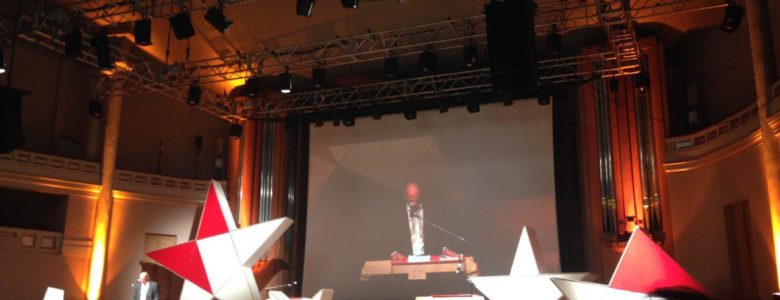
DiEM25 packs a full house at “Real State of the Union” event in Brussels – UPDATED
Last Saturday, DiEM25 landed in Brussels for its “Real State of the Union” event at the BOZAR theatre. Our movement packed the house with over 1,500 people in attendance, including hundreds of DiEM25 activists from across the continent.
Thank you all!
See below for:
- The recording of the event (all 3 hours and 6 minutes of it)
- Our report with photos
- Relevant media coverage around the event
Carpe DiEM!
Event report
The day started with a full house for our five-hour workshop at Bozar in Brussels.

100s of DiEMers sat together to brainstorm and agree a list of actions on how we, as grassroots DiEM25 activists, can take our work to the next level and produce the ground-up change that Europe needs.

After an intro by Yanis Varoufakis, our new CC member Orla De Díez, and Joren De Wachter, facilitated.
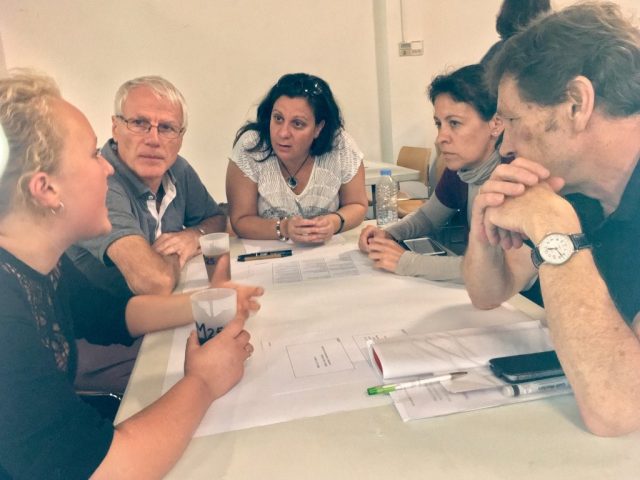
We captured many valuable insights that we will be feeding back into our work!
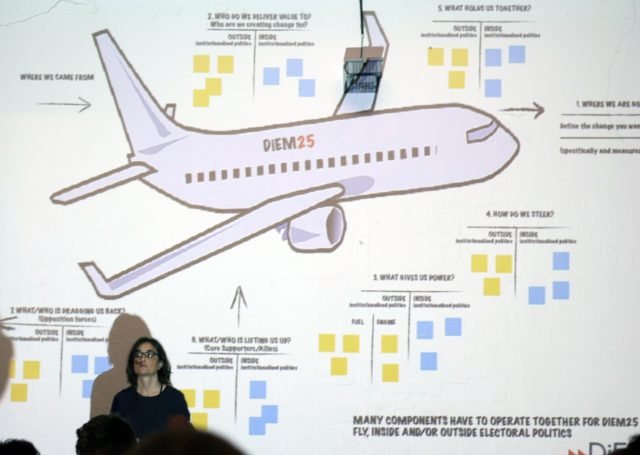
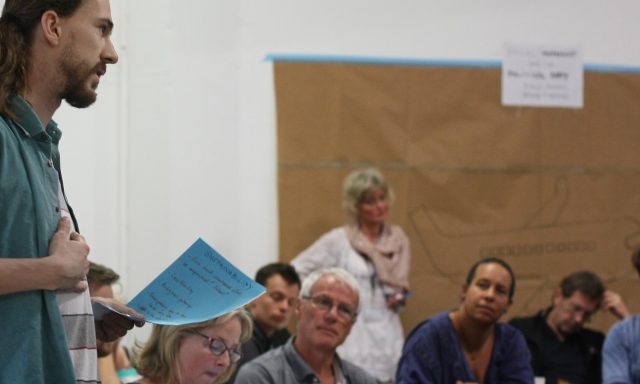
Then it was time for the main event. Kicking off at 7pm, the main hall of the Bozar theatre was (almost!) packed-out.

A speech from Yanis Varoufakis started the evening. He described the “authoritarian incompetence” of those in power in Brussels. On Europe’s refugee crisis, he said: “Put these three words together to get an unfunny joke: ‘European’, ‘migration’ and ‘policy’”.
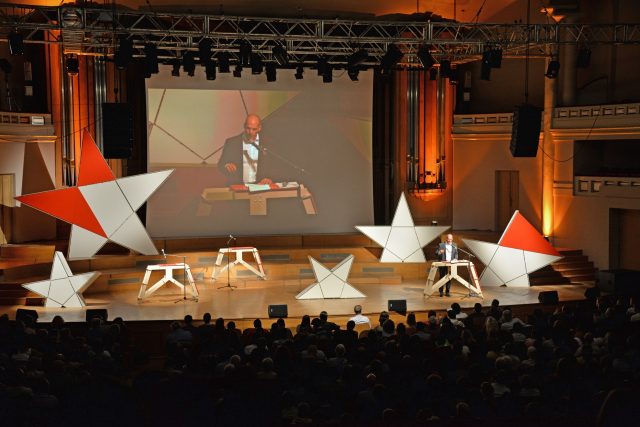
Dutch Artist Jonas Staal, whose sets are a regular feature at DiEM25 events, discussed the intersection between activism and art.
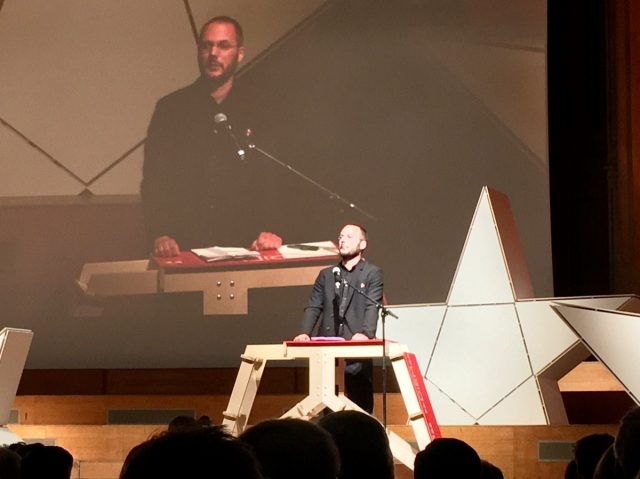
Then it was time for the first section of the evening, which attempted to answer the question “What is the state of play across Europe today?”. In other words, WHY is there a need for something like DiEM25 at all?
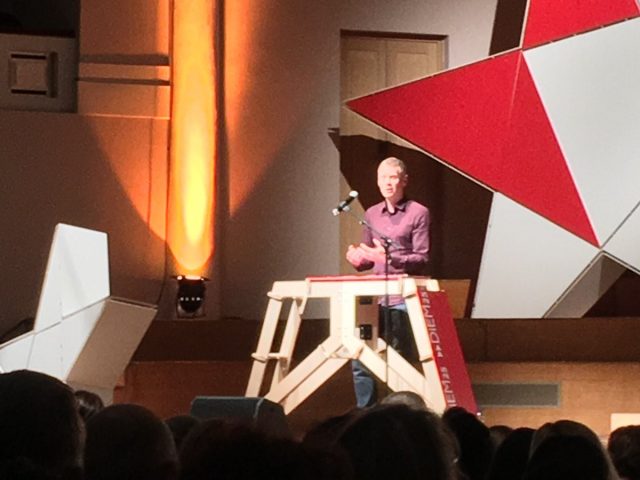
We heard from Philippe Legrain, Economist and former adviser to Commission President Barroso, on the EU’s mismanagement, as seen through the Economic and so-called Migration crises. He castigated EU policy makers as “self-serving, incompetent and corrupt”.
Katarzyna Szymielewicz, President of Panoptykon Foundation, talked about the gap between citizens and the EU in terms of legitimacy, accountability, and democratic control.
And Alice-Mary Higgins, independent member of the Irish Senate, discussed the implications of Brexit for Ireland and beyond, noting “Europe has gone from a democratic deficit to a democratic *disconnect*”
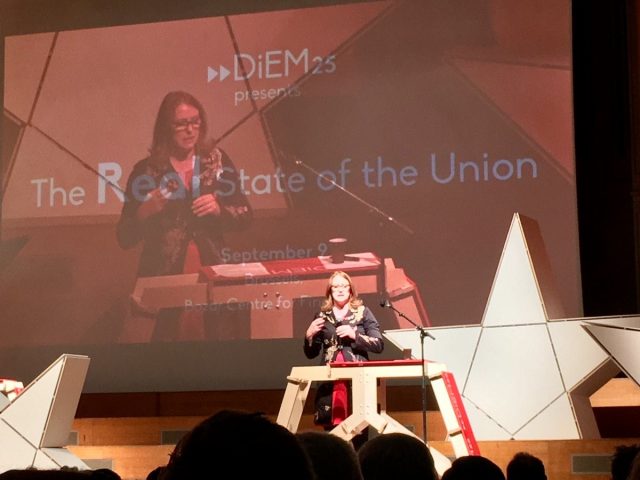
Meanwhile, as is standard as DiEM25 events, audience members were asking questions via the DiEM Voice art platform, which were displayed on a large screen behind the speakers. Why are we not a political party? wondered one of the submissions. Fair question!
And we moved to the second part of the event, attempting to answer the question: “What should Europeanists do in response to the real state of our Union?”
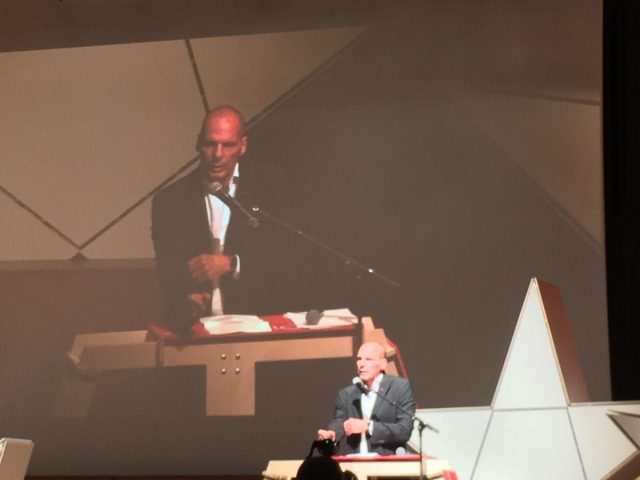
Yanis Varoufakis took to the stage again to outline our European New Deal, a set of proposals “to make the EU worth saving – while saving it”. And introduced Jeff Sachs, American economist and director of the Earth Institute at Columbia University.
Jeff Sachs discussed the future of Europe within and beyond its borders. “Is the EU worth saving?” he said. “Don’t even ask. The world desperately needs it. Desperately.”
He said he was pleased with DiEM25’s success so far, then took out his mobile phone and snapped a photo of the audience, saying “I want to show this to Bernie when I get home!”
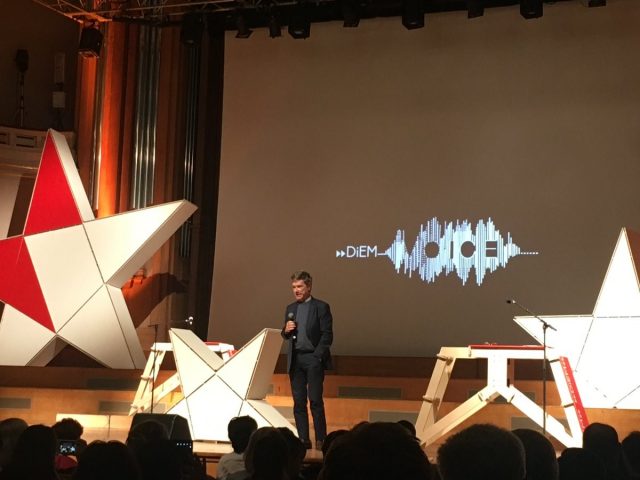
Next up was Rafael Correa, former President of Ecuador and a big inspiration for DiEM25’s proposals. In a passionate speech, he highlighted Ecuadorian policies with a focus on how they relate to Europe, and took aim at neoliberalism pointing out: “Every decision favours financial capital, not human beings. We *must* change that balance.”
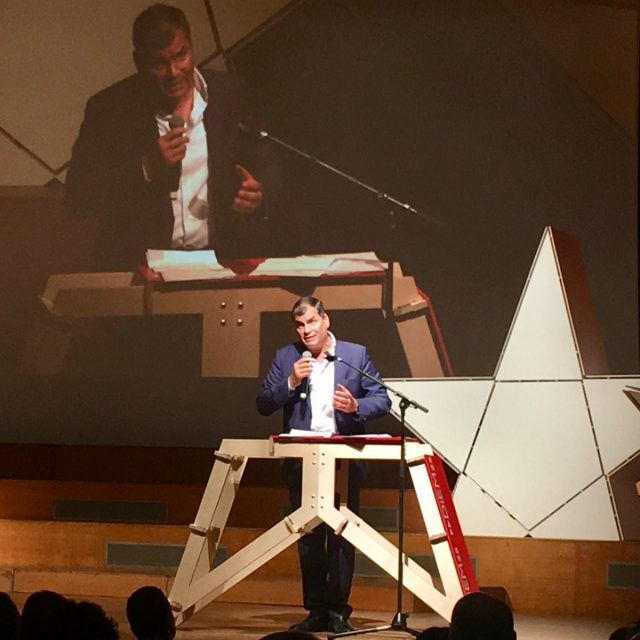
After a Q+A in which the audience’s messages via DiEM Voice were point to the panel, it was time for the third and final part of the event: What does DiEM25 propose to do over the next two years, leading to the European elections of 2019, and beyond?”. In other words, the HOW. (Because DiEM25 is not just about making proposals, but also seeing them implemented!)
OpenDemocracy’s Rosemary Bechler (a member of our coordinating collective) spoke about the politics unleashed by Brexit and how Europeans must stick together, regardless of EU membership, for achieving our vision of a progressive Europe. “The UK must play a key role in the radical transformation Europe needs,”she said.
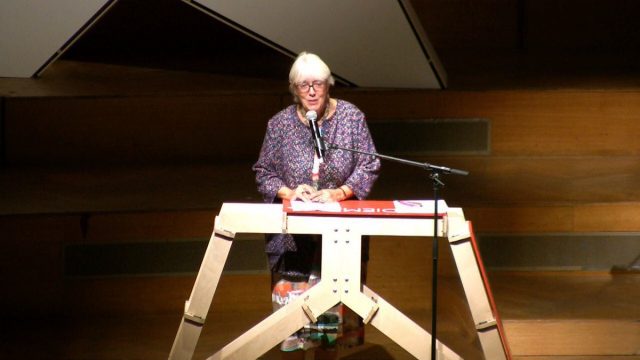
Lorenzo Marsili, also a DiEM25 Coordinating Collective member, outlined the discussion within DiEM25 about building a transnational political party, and put forward our ambitious plans to re-invent democracy for the twenty-first century.
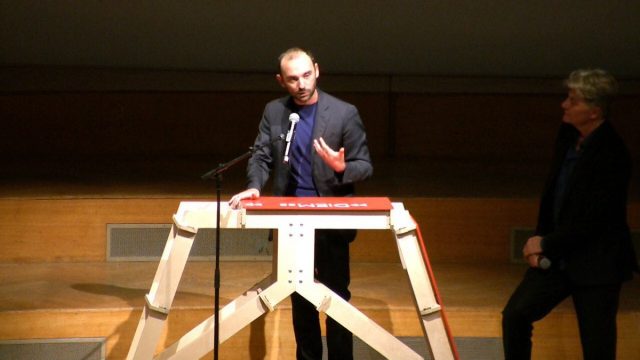
A member of the audience asked a very pertinent question on our DiEM Voice platform 🙂
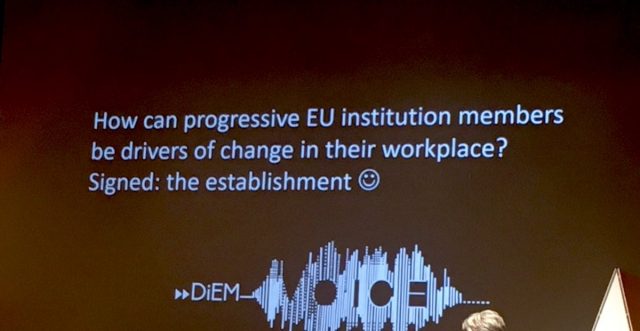
Yanis Varoufakis had some closing words. “Our dream,” he said, “is that our project can be presented and put in place for 2019”
Lastly, Erik Edman, a DiEM25 Volunteer Coordinator and the brains behind the event, closed the event with a short speech, inviting all who were interested in learning more about our movement to join us at the next DiEM25 Belgium event in Brussels on September 27.
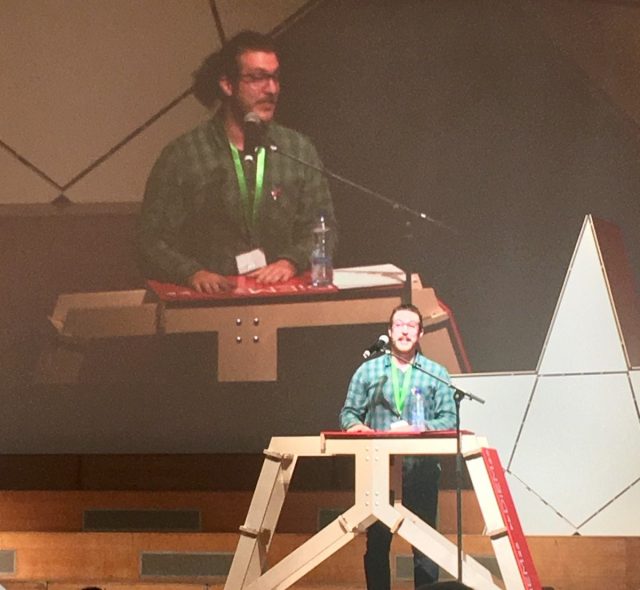
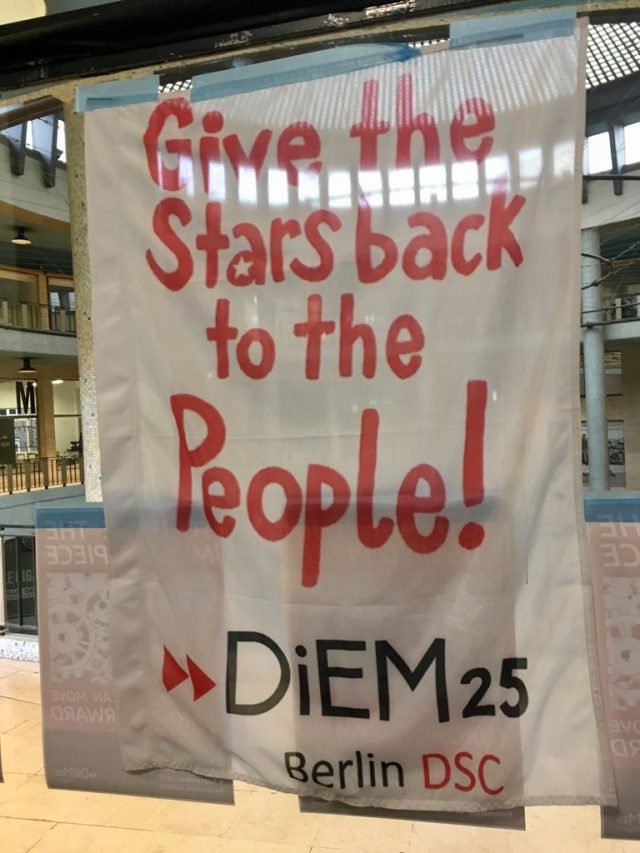
Media coverage around the event
- Varoufakis group may seek MEP posts in 2019 (EU Observer, September 11, 2017)
- Yanis Varoufakis: EU at risk of ‘disintegration’ (Politico Europe, September 11, 2017)
- DiEM25: the courage to imagine and to the transform the EU (Pressenza, September 11, 2017)
- Interview with Rafael Correa (Huffington Post – Spanish, September 11, 2017)
- Varoufakis mischt die Sozis auf (TAZ, September 11, 2017)
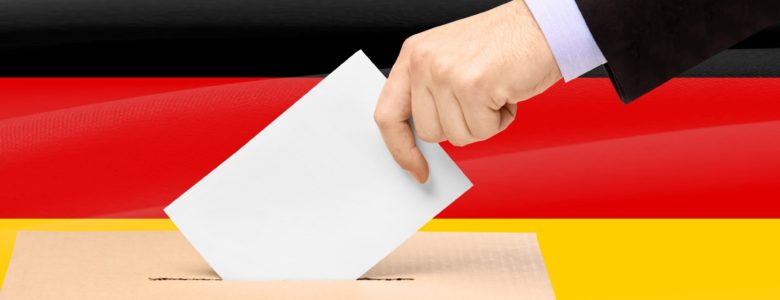
Will elections in Germany change anything?
All Europe’s hopes are pinned on the German elections on September 24th. Wolfgang Münchau, writing in the FT, is sceptical that anything will change as a result, and if it does, the outcome is likely to be even more austerian (eg the FDP, a potential coalition member, want Greece out of the Eurozone).
The truth is that there will be no change in the German government’s policies on Europe (regardless of its composition) until there is a change of mindset. Germany’s constant primary surplus makes it look outwardly like a model economy. But Germany is also experiencing the lowest level of investment in its history, with record levels of savings, in spite of negative ECB deposit rates. At the same time, wages are being suppressed and casual work is on the rise.
What is needed is a rebalancing of the European economy and the Eurozone, to eliminate the structural imbalances that are pitting one nation against another. DiEM25’s European New Deal contains a program to do just that, and what’s more, it’s designed to work within the existing European institutions and rules – so the German government should have no problem signing on to it.
Adam Newby is coordinator of the Andalucía DSC.
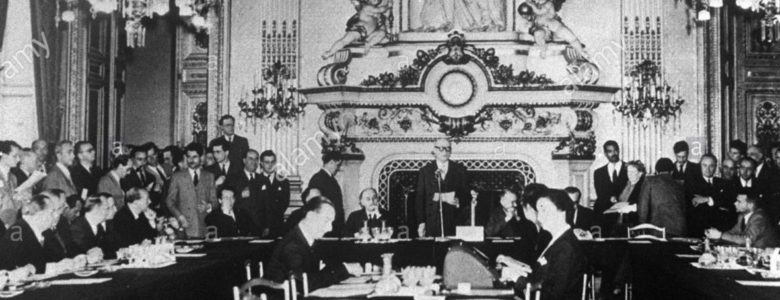
How the European idea can be saved
One of the goals in DiEM25’s Progressive Agenda for Europe is to initiate a constituent process – to imagine a democratic pan-European constitution and the process that may lead to it. It’s a long enterprise, but we’re already making good progress and the conversation is well underway amongst our members across Europe.
This is part 2 of London DSC member Sam Hufton’s thoughts on such a constituent process as a means to contribute to our conversation. In this paper, Sam looks at how the European idea can be saved. (Here’s part 1 on why Europe’s existing treaties are failing its citizens)
On the Transnational
Having determined that the treaties and accompanying international paradigm are failing Europe and depriving it of democracy, a new one must be constructed with democracy at its core. This is necessary to save the European idea, which is radical and revolutionary in spirit, but has been led towards reinforcing established power and not undermining it.
To recover the idea, then, and turn it into reality, we must examine the roots of the idea of unification and the antecedents of our Union in history – specifically, Spinelli and Rossi’s Ventotene Manifesto, the last product of the revolutionary tradition of thought on unification. It is from this foundation that we can build a ‘Transnational’ interpretation of the idea, which will serve as the basis of a second Reformation of Europe.
This reformation, like the first, will challenge old articles of faith and knock away redundant pillars, but not seek to throw everything out; the fundamental idea will remain, but will be reborn. Once this has been achieved, we can turn to the construction of a new political community which gives these ideas life and substance, and acts as an example for the rest of the world as the European Project always intended; the Union of European Nations as a civic-state.
Read the full piece here.
Sam Hufton is a student at King’s College London and member of DiEM25 since Feb 2016, involved in the London DSC. Alongside his studies, he writes a blog on European politics and history: Evropaïki Dimokratía.
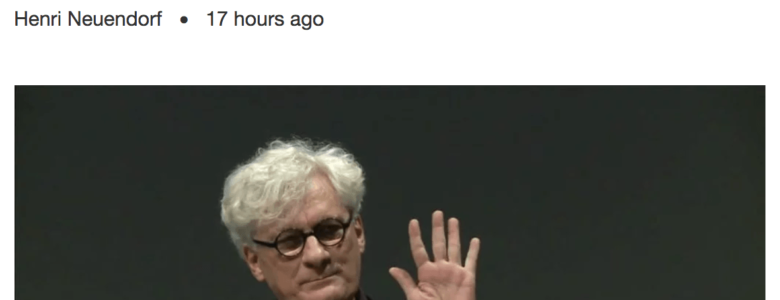
Did you forget the meaning of the words: Nie Wieder Auschwitz?
The continued controversy surrounding Franco Bifo Berardi’s censored ‘Auschwitz on the Beach’ performance has prompted the Italian philosopher and DiEM25 Advisory Panel member to write the open letter below.
At DiEM25 we believe censorship is the coward’s way out of controversy. Dialogue, fierce disagreement and, hopefully eventual synthesis, is the hard road that true democrats dare to tread.
I read somewhere that in the 1940s, when Paris was occupied by the Germans, a Nazi officer visited Picasso’s studio. “Did you do that?” he is said to have asked Picasso while standing in front of a photograph of the painting “Guernica”. “No,” Picasso replied, “you did.”
In do not want to make a comparison between Picasso and the authors of the (invisible) performance ‘Auschwitz on the Beach.’ Far from it.
Yet, I watch the reactions of large part of the German press (although some of the commentators, like Philipp Ruch of the Suddeutsche are rejecting the prevailing hypocrisy) and I see that they are engaged in a lynching against me and my collaborators because we dared to remind them of a sentence: Nie Wieder Auschwitz.
Reading some of the comments (like those of Jens Jessen of the Zeit) one may think that we have committed a crime against humanity.
No, dear German journalists, crimes against humanity are what you have committed, what the German people have committed, and what you are committing again, together with your Italian and French and Spanish colleagues.
At the August 28th summit of Paris, the European governments are yet again proposing a horrendous show of a mass extermination based on ethnic foundations.
I repeat my choice of word carefully pronouncing the syllables: ex-ter-mi-na-tion.
Officially 30.000 people have drowned in the Mediterranean Sea because of the European rejection, and now the Italian government is denouncing and chasing the NGOs that rescued tens of thousands of women and children and men from death in the water.
Doctors without Borders have abandoned the sea and proclaimed the impossibility of doing their work because of the attitude of the European authorities.
But what is happening in the Sea is only a part of the story: the process of extermination is expanding at the Southern Libyan border, and in the deserts of West Africa.
One million migrants are detained in the concentration camps of Libya (can I use this expression or is it too much for the priggish sensibility of the German journalists?).
In the near future a growing number of migrants will meet the armies of Europe-sponsored Chad, Mali and Libya, countries of unblemished humanitarianism.
This crime against humanity is committed on the basis of ethnic discrimination. Those targeted are not white citizens and do not have the right to migrate, while white citizens can go to Africa as tourists and as businessmen, and if those nations prevent it, we send our troops.
Extermination based on ethnical discrimination: this is what Europe is programming and carrying out.
Can I ask you to remember that once upon a time you said: Nie Wieder Auschwitz, and now you are indignant about someone who is reminding you those words?
Twenty years ago, when the phenomenon of great migration was at its beginning, the European governments should have invested money in reception, education and integration. On the contrary, they invested in reinforcing the Fortress, in rejecting people who were escaping from the effects of our colonialism and of our wars. They have chosen to put social resources into the expansion of financial power and in the rescue of a morally corrupt bank system.
Now we are engaged in a war. In this war, we are going to kill uncountable humans, and the final body count – sooner or later – will be the business of those who will survive.
But this war we will lose, we have already lost. First, because we have renounced democracy, humanity and self-respect. Second, because an army of suicidal avengers is looming on the horizon, from Pyongyang to the Middle East to the suburbs of the European metropolis.
The Nazism of Hitler was defeated, but not before Europe was destroyed. The contemporary mix of racism, nationalism and globalism will be defeated, too, but meanwhile it is going to destroy human dignity from the face of the planet.
In the last days, I have received a flow of message from friends, comrades, artists and intellectuals (many of them are Jews). Some are criticising me because I accepted the cancellation my performance, and say that I have accepted censorship.
Not at all.
Myself, Stefano and Dim did decide to cancel the performance together with the documenta14 directors, because this was the way of getting the maximum attention to our message.
In this case it is not my freedom of expression that is at stake, but the life of millions of women and men that European cynicism is exterminating. Therefore, I willingly renounce to my freedom of speech, if I can call attention on the extermination which is underway.
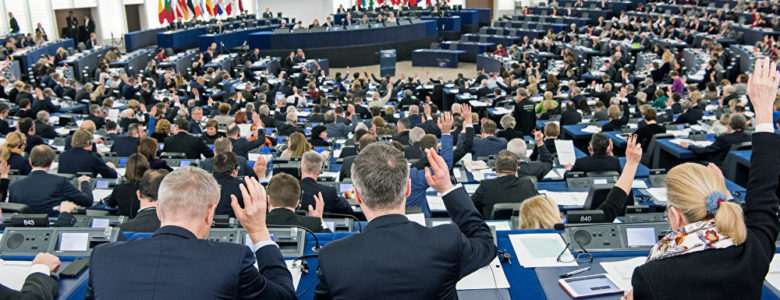
Why Europe’s treaties are failing its citizens
One of the goals in DiEM25’s Progressive Agenda for Europe is to initiate a constituent process – to imagine a democratic pan-European constitution and the process that may lead to it. It’s a long enterprise, but we’re already making good progress and the conversation is well underway amongst our members across Europe.
In this two-part series, London DSC member Sam Hufton shares his thoughts on such a constituent process as a means to contribute to our conversation. Sam looks first at why Europe’s existing treaties are failing its citizens… and then at how the European idea can be saved. Here’s part 1:
On the International
Europe’s current malaise is linked to the contradictions and misunderstandings of its constitutional architecture. By analysing the treaties for what they are, we see they are a poor substitute for a real constitution, mainly because they lack the key normative element: democracy.
Treaties force us into an international paradigm which deprives citizens of constituent power, as well as control over their governments and the ability to see what’s being done in their name. Thus, Europe’s political elite can tailor the constitutional architecture exactly to their interests and those of established power.
The so-called ‘Constitutional Treaty’ requires special attention as it takes these issues and intensifies them, with the spurious use of ‘constitution’ and seeming intention to rewrite the meaning of democracy. By analysing their failures and their contradictions, we see that treaties are unable to give Europe a democratic footing, and instead strip the peoples of Europe of their constituent power and sovereign authority. Instead of the international approach, and more transnational perspective is needed which will pave the way towards a real constitution.
Read the full piece here.
Sam Hufton is a student at King’s College London and member of DiEM25 since Feb 2016, involved in the London DSC. Alongside his studies, he writes a blog on European politics and history: Evropaïki Dimokratía.
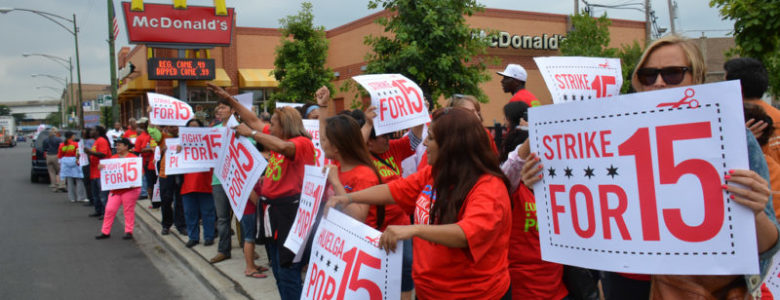
UK McDonald’s workers strike for the first time for a living wage
The fight back against the Fast Food industry’s squeeze on worker wages which started in American has reached the shores of Britain. McDonald’s workers at two outlets, in London and in Cambridge, are striking for living wages, an end to zero hour contracts and the right to join a union. To put this into perspective, the minimum wage is £7.50 an hour for those over 25 years old and there is a downward sliding scale with the bottom wage being £4.05 an hour for those under 16 years of age.
The living wage recommendation is £8.45 outside London and £9.75 in London an hour. There is a huge discrepancy between a wage needed to live a meaningful life against the current levels.
McDonald’s is valued at $106.4 billion according to Forbes. The CEO, Steve Easterbrook, earned $15 million in 2016. The Fast Food industry is not an ailing industry as people live fast paced lifestyles which demand food on the go but does not deem its’ workers to be a valuable part of this expanding industry except as modern wage slaves.
The strike has received much support notably from the prominent Labour politician, John McDonnell, shadow chancellor and member of DiEM25’s Advisory Panel. Mr McDonnell called the strike an “absolute inspiration” because “the best security we can have is them recognising trade unions so grievances can get resolved rather than strike action”.
DiEM25 supports the strike and the demands for a living wage and the right to join a union. We believe that job security is the best route for meaningful participation in a democracy.
Jane is a member of our London DSC and blogs at www.ambitiousmamas.co.uk on feminism, politics and race. You can also follow her on Twitter.

Nuclear weapons modernised as nations prepare to ban them
North Korea’s sixth nuclear test, which it apparently conducted today, comes while the world’s other nuclear powers are arming up. All nine of the world’s countries with nuclear weapons are investing massively in modernising them, according to a new report out last week by SIPRI. This is despite a reported 3% reduction of 460 weapons in 2017.
The USA and Russia between them hold 93% of the world’s arsenal, with thousands on hair-trigger alert and ready to be launched within seconds of the order being given. According to SIPRI, to take one example, the USA is due to spend up to $1 trillion over the next 30 years.
This terrifying statistic stands against another published by the International Physicians for the Prevention of Nuclear War (IPPNW), who are holding their international congress on September 4 in the UK city of York. Their 2013 report, prepared for a conference studying the humanitarian impacts of nuclear weapons, indicates that a limited nuclear war with the use of 100 warheads dropped on cities would lead to a nuclear winter that could end the lives of up to 2 billion people.
These worrying numbers have led civil society campaigns such as ICAN, the International Campaign to Abolish Nuclear Weapons, to heavily promote a nuclear weapons ban treaty, bringing nuclear weapons in line with chemical and biological weapons as legally prohibited weapons of mass destruction.
After years of promoting efforts to get the UN to agree to such a treaty, this year in June the text of a treaty was approved after negotiations with over 120 states. The treaty will be opened for signing during the UN General Assembly in September this year. With the signature and ratification of 50 States, the treaty comes into force.
DiEM25 believes that nuclear weapons have no place in European security doctrines and that all nuclear weapons should be removed from European territory, be they British, French, American or Russian. We call on all European nations to sign the Ban Treaty as a matter of human survival.
Tony Robinson, DSC Budapest 01, and member of the Abolition 2000 Coordination Committee